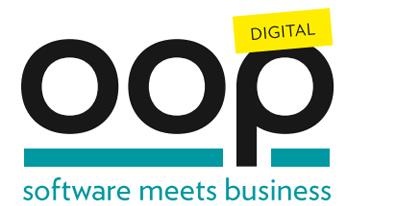- Deutsch
- Contact
- Newsletter

Conference Program
Please note:
On this site, there is only displayed the English speaking sessions of the OOP 2022 Digital. You can find all conference sessions, including the German speaking ones, here.
The times given in the conference program of OOP 2022 Digital correspond to Central European Time (CET).
By clicking on "EVENT MERKEN" within the lecture descriptions you can arrange your own schedule. You can view your schedule at any time using the icon in the upper right corner.
Paradigms Lost, Paradigms Regained: Programming with Objects and Functions and More
It is very easy to get stuck in one way of doing things. This is as true of programming as it is of life. Although a programming paradigm represents a set of stylistic choices, it is much more than this: a programming paradigm also represents a way of thinking. It represents a set of patterns of problem framing and solving and contains the ingredients of software architecture.
This session explores the strengths and weaknesses of different programming styles, patterns and paradigms across different programming languages, past and present.
Target Audience: Developers, Architects
Prerequisites: Programming experience
Level: Advanced
Extended Abstract
It is very easy to get stuck in one way of doing things. This is as true of programming as it is of life. Although a programming paradigm represents a set of stylistic choices, it is much more than this: a programming paradigm also represents a way of thinking. Having only way to think about problems is too limiting. A programming paradigm represents a set of patterns of problem framing and solving and contains the ingredients of software architecture. As Émile Auguste Chartier noted, there is nothing more dangerous than an idea when you have only one idea.
Perhaps even more problematic than being stuck with a narrow view of paradigms, is being stuck with a dysfunctional view of each paradigm. For instance, many developers working in languages and frameworks that support object orientation have a strong idea of the principles of interaction, data abstraction and granularity that support an effective view of OO, and instead surround themselves with manager objects, singletons and DTOs.
This session explores the strengths and weaknesses of different programming styles, patterns and paradigms across different programming languages, past and present.
Kevlin Henney is an independent consultant, speaker, writer and trainer. His development interests are in programming, practice and people. He is co-author of two volumes in the ”Pattern-Oriented Software Architecture” series, and editor and contributor for multiple books in the ”97 Things” series. He lives in Bristol and online.
Vortrag Teilen

